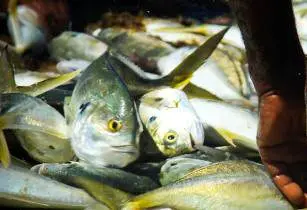The Namibian Ministry of Fisheries and Marine Resources has started the process to determine a new mechanism for allocating fishing quotas to all right holders by January 2016
“This is an important process, which will help clarify some of the concerns raised by right holders with regard to quota allocation,” fisheries minister Bernhard Esau said.
The ministry initiated a review of the policy and legislation earlier this year to align the legislation with the current state of the fisheries sector to ensure proper management of resources and how it should benefit the nation.
A draft policy was adopted and presented to stakeholders from all the 14 regions in the southwest African country recently.
Chairman of Confederation of Namibia Fishing Associations Matti Amukwa added that the creation of a ‘level playing field’ was important for the Namibian fishing industry to properly compete internationally.
“If some rights or quotas for particular companies or individuals are more benefiting than similar ones without a clear reason, we will continue killing each other locally while losing our competitive edge abroad. Namibia must compete against other fish producing nations to bring the maximum returns to our country and all stakeholders must benefit from this,” Amukwa noted.
He also said this was important for the industry’s stability and a clear legal framework for sustainability and growth, especially in terms of the large investments required to create a sound land-based industry.
Part of the draft policy noted that the fisheries minister shall gazette conditions and procedures required in granting each type of fishing right. Such conditions would include monitoring and performance of every right at least once every three years, based on transparent criteria.
It also stated that rights held by a holder who is not fishing directly “but rather fishes using other fishing agents in which they have no shares, shall not be renewed, and may be subjected to a reduced duration, as the minister determines”.
The quota allocations would be given to right holders who create the highest number of high quality jobs per metric tonne of fish landed.
The policy, which is expected to become law before mid-2016 according to Esau, also covers issues on sustainable harvesting of stocks; monitoring, control and surveillance; TAC; aquaculture development; socio-economic considerations; value-addition and standards compliance; marketing, investments and joint ventures; financing and domestic food security.
Namibia has one of the leading fisheries sectors in the world with annual marine landings of about 550,000 tonnes worth US$491mn.





